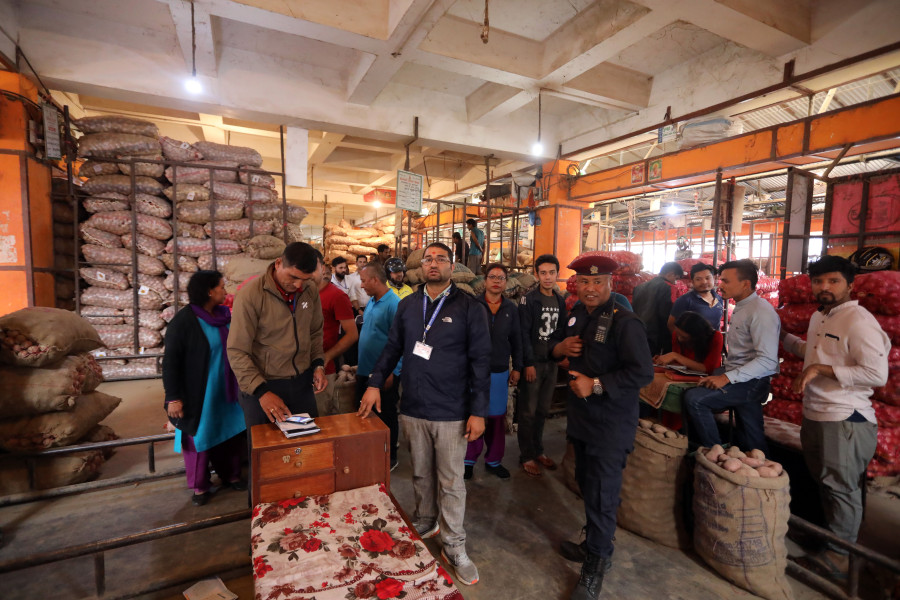Money
New code of conduct being created for market inspectors
The Commerce Department has also formed a task force to revise the list of essential commodities.
Krishana Prasain
The Department of Commerce, Supply and Consumer Protection is preparing to establish a new code of conduct for market inspectors following concerns over their handling of cases of business misconduct.
Director General Netra Prasad Subedi of the department said that consultations were being held with stakeholders and experts before preparing a preliminary draft of the code of conduct. The first draft is expected to be ready by December 31, he said.
Subedi said that new rules and regulations became necessary for inspection teams to work freely and in a transparent way.
The department has been carrying out daily market inspections and punishing firms found engaging in dishonest practices according to the Consumer Protection Act 2018. But the daily market inspections have had very little effect with businesses continuing to cheat consumers with regard to price and quality.
Consumer rights activists have been criticising the government for not being able to conduct consumer-oriented market inspection and being money-oriented. The activists have accused the government of being weak and not taking action against dishonest large firms and only scrutinising small businesses.
The department has also formed a task force to manage different market levels and determine the prices accordingly and revise the official list of essential goods.
Subedi said that the department was conducting discussions to prepare a first draft of the different components of the supply chain from supplier to end customer. “We are planning to minimise the different components from production to retail so that prices can be minimised,” he said.
The Department of Commerce, Supply and Consumer Protection has also formed a task force to revise the list of essential commodities. “We are reviewing the list of essential commodities as needs have changed over time, and it has become necessary to make a revision,” he said. The list of essential commodities contain 29 goods including food grain, salt, fuel, basic construction materials, medicines and spare parts for vehicles.
Subedi said that discussions were underway to bring the list up to date and decide what products should be included in it. “We are at the preliminary phase, and we are carrying out discussions to prepare a draft,” he said.
After finalising the first draft, the government will send it to the Cabinet for its approval. Subedi said they hoped to complete all the work by mid-January 2020.
Nepal's first consumer court is also likely to come online in the next three-four months, said officials at the Ministry of Industry, Commerce and Supplies.
In the absence of a consumer court, cases are currently either filed at the District Court or district administration offices, leading to lengthy administrative procedures and bureaucratic hassles.




 20.12°C Kathmandu
20.12°C Kathmandu














